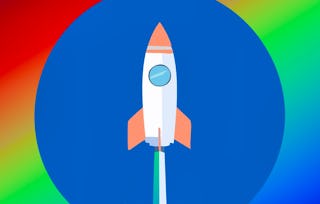In this course you will define your own data types in C, and use the newly created types to more efficiently store and process your data.
Many programming languages provide a number of built-in data types to store things such as integers, decimals, and characters in variables, but what if you wanted to store more complex data? Defining your own data types in C allows you to more efficiently store and process data such as a customer's name, age and other relevant data, all in one single variable! You will also gain experience with programming concepts that are foundational to any programming language. Why learn C and not another programming language? Did you know that smartphones, your car’s navigation system, robots, drones, trains, and almost all electronic devices have some C-code running under the hood? C is used in any circumstance where speed and flexibility are important, such as in embedded systems or high-performance computing. At the end of this short course, you will reach the fifth milestone of the C Programming with Linux Specialization, unlocking the door to a career in computer engineering. Your job Outlook: - Programmers, developers, engineers, managers, and related industries within scientific computing and data science; - Embedded systems such as transportation, utility networks, and aerospace; - Robotics industry and manufacturing; - IoT (Internet of Things) used in smart homes, automation, and wearables. - IEEE, the world’s largest technical professional organization for the advancement of technology, ranks C as third of the top programming languages of 2021 in demand by employers. (Source: IEEE Spectrum) This course has received financial support from the Patrick & Lina Drahi Foundation.





















